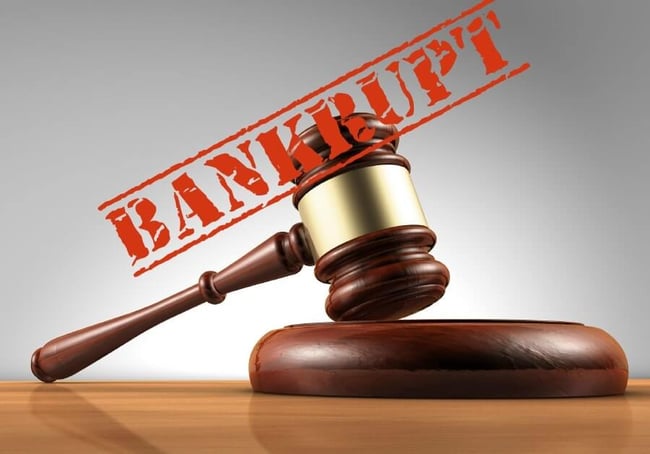Scura, Wigfield, Heyer, Stevens & Cammarota Blog
- Blog
How Do You Rent a New Apartment After Filing for Bankruptcy in NJ?
When you file for bankruptcy, you often feel marked by the filing. Whether you’re buying a new car or looking for a new apartment to rent, you remain conscious that your bankruptcy will follow you. Bankruptcy remains reported for a time on your credit score.
If you intend on finding a new apartment or a new house to rent, you will need to be open about your financial history. This includes any past bankruptcy filings or prior evictions. Some landlords will obviously reject people if they do not feel your records satisfy their needs for a tenant. This can be highly stressful for people who needed bankruptcy relief.
If you are looking for a new place to live and are afraid that bankruptcy will hold you back from success, then you may want to consider a few factors before moving forward in order to know where you stand and how you can convince a landlord to give you a new lease on an apartment.
Landlords Will Look at Your Credit Reports

Why should you be concerned about bankruptcy when looking for an apartment? The answer is simple: landlords will look at your credit reports. If they are going to rent you a new place to live, they will want to know if the person they’re renting out space to is reliable with financial responsibility. They want to see your financial history, and bankruptcy does appear on your credit report.
This means that they may not want to rent a room to someone who has overdue payments and unpaid mass debts that need to be taken care of. If you have left your creditors with empty pockets after taking advantage of their services, landlords will not be too keen to rent you a room. To them, this is a recipe for eviction, which is a costly process for both tenants and landlords.
Landlords want to invest in you so you can pay them. If they believe there will be no financial return on renting a room out to you, they will not rent a room out to you. Ergo, bankruptcy is just one of many factors landlords consider, along with any past repossessions or outstanding debts, before renting out a room to you.
Are You Trying to Rent While in Bankruptcy or After Bankruptcy?
When you try to look for a new apartment, the situation changes if you are currently filing for bankruptcy or filed for bankruptcy in the past. If you have just completed your bankruptcy, then the bankruptcy will remain a mark on your creditor report and must be reported to landlords you hope will rent you a living space.
The more time that passes between you filing bankruptcy and you renting an apartment, the more likely the renter will ignore the bankruptcy. A bankruptcy in your past is far less of a concern to a renter than a bankruptcy that is currently on-going.
The problem is that many people who file bankruptcy struggle to pay bills in a timely manner. As such, the landlord will have to consider if you are able to make regular rent payments or not. This means consideration of if you have regular income, have held down a job, among other factors.
For this reason, sometimes bankruptcy can be beneficial to you, since it wipes debt from your credit score. Some people, when filing for bankruptcy, find their credit score increase due to how bankruptcy erases overdue debts and the like from your credit score. For this reason, bankruptcy, especially older bankruptcy, might improve your standing to a landlord.
However, if you are currently engaged in a bankruptcy or are in the early days of your payment plan, that might not inspire confidence in a landlord.
Are You Renting with Chapter 7 or Chapter 13?

There are reasons why landlords might hesitate to rent out to someone in the middle of a bankruptcy procedure. However, landlords will have different approaches to bringing on bankrupt renters, depending on which chapter of bankruptcy you are filing.
If you are filing Chapter 13 bankruptcy, then the landlord might be hesitant if he believes the rent will be subject to debt reorganization. If you are waiting to have your new debt obligation approved by the court, your future landlord might not be eager to wait. However, if you are well on your way filing the bankruptcy and in the middle of your payment plan, the matter might be easier to discuss.
As for Chapter 7, landlords need to consider if their rent will be discharged by Chapter 7 if you are given a room while in the process of filing for Chapter 7 bankruptcy relief. Of course, the Automatic Stay that freezes debts only applies to debts on personal property. However, you are renting, not owning, the apartment. A landlord well-versed in bankruptcy law understands that any debt incurred following your filing for Chapter 7 will still be yours to pay. If they are not well-versed, then the matter might require an attorney.
However, in all cases, the likelihood of a landlord being more open to renting you a room increases the longer after the initial filing and initial debt relief process.
The Good News is That You Can Still Rent While Going Through Bankruptcy

The good news is, though, that you can still rent a new place while undergoing bankruptcy. In fact, there are ways you can frame the bankruptcy to potential landlords that makes you look more appealing as a potential tenant.
Individuals with large amounts of outstanding debt do not make for good tenants. However, individuals who have figured out how to pay off their debts are far more appealing to landlords. Most often, bankruptcy will draw attention for a landlord, but if you explain the situation and process, the landlord will likely come to understand the circumstances behind why you filed for bankruptcy, as well as how you managed to overcome your obstacles.
Landlords want is a tenant who will pay the rent, not cause avoidable disruptions, and serve as a financial investment to them. If you’ve filed for bankruptcy, that proves you are willing to work to renegotiate debt and responsibly dealing with troubles that come your way.
Ultimately, what landlords value most is prior renting experience. Were you truant on rent? Did you cause disruptions? If you have those components down, the rest should fall into place. You might be asked questions, but you will ultimately walk away with the keys to a new place to live.
If you are having challenges with bankruptcy, you might need a bankruptcy attorney who can solve your problems. That’s where we come in. The attorneys at Scura, Wigfield, Heyer, Stevens & Cammarota LLP can help. Please call our offices to schedule a free consultation and hear your options.
Share Article
Need Help? Contact Us Today!





Lists by Topic
- Bankruptcy (320)
- Personal Injury (95)
- Chapter 13 (52)
- Chapter 7 (50)
- Debt Management (50)
- Foreclosure (47)
- Accident (32)
- Car Accident (26)
- Chapter 11 (24)
- Business Bankruptcy (19)
- Credit (18)
- Insurance Claims (17)
- Business Law (12)
- Litigation (12)
- Employment Law (11)
- Probate and Estate Law (11)
- Damages (10)
- Medical (10)
- Product Liability (10)
- Workers Compensation (10)
- Attorney (9)
- Consumer Bankruptcy (9)
- Commercial & Residential Real Estate (6)
- Slip and Fall (6)
- Contracts (5)
- Premises Liability (5)
- Repossession (5)
- wrongful death (5)
- Video | Bankruptcy (4)
- Bankruptcy Cost (3)
- Corporate Litigation (3)
- Trial Law (2)
- student loans (2)
- tax (2)
- Attorney Fees (1)
- COVID-19 (1)
- Certified Civil Trial (1)
- Dog Bites (1)
- News (1)
- Relocation Assistance (1)

